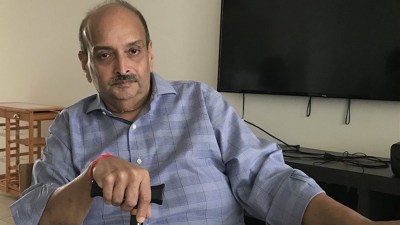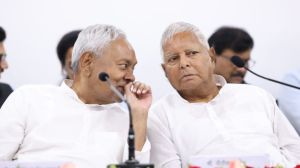Nomination can’t make his mission any more Nobel
He has been on his mission silently for the last half a century. Yet, not many had heard of this man until his nomination for the Nobel Peac...

He has been on his mission silently for the last half a century. Yet, not many had heard of this man until his nomination for the Nobel Peace Prize hit the headlines this week.
Father Marian Zelazek, 84, though aware of his nomination for the most prestigious award since January last, had kept the news close to his chest. Only after he was shortlisted for the award did others come to know of this.
Ever since then, there has been a steady stream of mediapersons, tourists and residents to his place of work, ‘‘Karunalay Centre of Mercy and Love’’, a leprosy colony at Baliapanda in Puri.
Though ‘‘surprised’’ by the turn of events, Father Zelazek still has his feet on the ground. To him, it is the recognition of his team’s work in providing shelter, treatment and love to leprosy patients. And also instilling a sense of hope among people.
Father Zelazek, who was conferred the highest civilian award of Poland, the Chivalry Cross, in April 2000 for his outstanding social work was recommended for Nobel Peace Prize early this year by politicians, intellectuals and social workers from India and Europe. Among them are two Polish Nobel laureates, Czeslaw Milosz and Wieslawa Szymborska.
Karunalay, where 600 patients live, was built over the last 27 years. Though many of the inmates were initially unable to comprehend what the Nobel recognition meant, they are all excited today. ‘‘Father deserves this honour more than anyone else and we are praying for him,’’ says Shatrughna Mohanty, a patient cured but crippled by the disease.
Karuanalay has a hospital, a dental clinic, a school for children and a poultry farm. The Father came to India as an educator in 1950 and spent time in Sunderagrh district of Orissa for the upliftment of the tribals.
Though a missionary, he is no proselytiser, for Puri, a seat of Vaisnavism, is the last place for such activity. Some of his best friends are the priests and sevayats of Lord Jagannath. And he converses with all in chaste Oriya, with an accent of course.
That he has come out through the horrors of a Nazi concentration camp at Dachau with his compassion intact is a testimony to the man’s commitment to humanity.



- 01
- 02
- 03
- 04
- 05




























